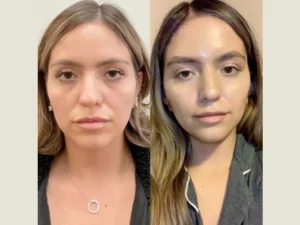
Alcohol detox is the critical first step toward recovery from alcohol dependence. It refers to the body’s natural process of eliminating alcohol and adjusting to its absence. While it may sound straightforward, alcohol detox is a complex physiological and neurological process that involves significant changes in brain chemistry, hormone levels, and organ function. Understanding the science behind alcohol detox helps demystify the experience and highlights the importance of medical support during this vulnerable stage.
What Happens to the Body When You Stop Drinking?
When someone who has been consuming alcohol regularly suddenly stops, their body enters a state of withdrawal. This happens because the body has become dependent on alcohol to function. Alcohol affects neurotransmitters like gamma-aminobutyric acid (GABA) and glutamate, which regulate brain activity. GABA has a calming effect, while glutamate excites neurons.
Chronic alcohol use enhances GABA activity and suppresses glutamate. Over time, the brain adapts by reducing natural GABA production and increasing glutamate activity to maintain balance. When alcohol is suddenly removed, the brain is left with too much excitatory activity and too little inhibition. This imbalance causes withdrawal symptoms such as anxiety, tremors, seizures, and even delirium tremens (DTs) in severe cases.
Phase One: Acute Withdrawal (6 to 72 Hours)
The first phase of alcohol detox, known as acute withdrawal, typically begins within 6 to 24 hours after the last drink and can last for up to 72 hours. During this time, individuals may experience:
- Anxiety and irritability
- Nausea and vomiting
- Headache
- Rapid heart rate
- Sweating
- Insomnia
- Seizures (in severe cases)
- Hallucinations or confusion
These symptoms reflect the central nervous system struggling to rebalance itself. Medical supervision is often necessary during this stage, especially for those with a history of heavy drinking, as complications like seizures or DTs can be life-threatening.
Phase Two: Early Abstinence and Stabilization (3 Days to 2 Weeks)
Once the acute phase subsides, the body enters a stabilization period. During this phase, the brain slowly starts to regain equilibrium. Neurotransmitter levels begin to normalize, and the body’s stress systems—such as the hypothalamic-pituitary-adrenal (HPA) axis—begin to downregulate from their overstimulated state.
Physical symptoms like nausea and tremors usually decrease, but psychological symptoms often become more prominent. Individuals may experience:
- Mood swings
- Depression
- Anxiety
- Cravings
- Sleep disturbances
These issues stem from lingering chemical imbalances and the body’s adjustment to functioning without alcohol. Supportive care, counseling, and in some cases, medication like benzodiazepines or anticonvulsants, may be used to aid in recovery during this time.
The Role of the Liver in Alcohol Detox
The liver is central to the detox process. It metabolizes over 90% of the alcohol consumed, primarily through enzymes like alcohol dehydrogenase (ADH) and aldehyde dehydrogenase (ALDH). These enzymes break down alcohol into acetaldehyde (a toxic compound), and then into acetate, which is eventually converted to carbon dioxide and water.
Prolonged alcohol use can damage liver cells and impair its ability to function. Fatty liver, alcoholic hepatitis, and cirrhosis are common outcomes of long-term abuse. However, the liver is also remarkably regenerative. With abstinence and proper nutrition, liver function can begin to improve within weeks, although full recovery may take months or even years depending on the extent of damage.
Brain Recovery After Alcohol Detox
Alcohol affects nearly every part of the brain, including the prefrontal cortex (decision-making), amygdala (emotions), and cerebellum (coordination). Recovery of cognitive functions can vary widely. Studies using brain imaging techniques show that gray and white matter volume begins to improve within the first few weeks of sobriety.
Neurogenesis—the process of creating new neurons—may also resume in the hippocampus, a region associated with memory and learning, after prolonged abstinence. However, some changes, especially those related to long-term damage, may be irreversible. Early intervention during the alcohol detox stage is critical to maximize neurological recovery.
Nutrition and Hydration in Alcohol Detox
Malnutrition is common in individuals undergoing alcohol detox. Alcohol interferes with the absorption and utilization of essential nutrients like thiamine (Vitamin B1), folate, and magnesium. Thiamine deficiency, in particular, can lead to Wernicke-Korsakoff syndrome, a serious neurological disorder.
A medically supervised alcohol detox often includes nutritional support through IV fluids, electrolytes, and vitamin supplementation. Proper hydration and a balanced diet help accelerate the detox process and promote organ healing.
Why Medical Supervision Is Essential
While some people attempt alcohol detox at home, doing so can be risky. Medical detox provides continuous monitoring, medication-assisted treatment, and access to emergency care if complications arise. It also offers a structured transition into ongoing addiction treatment, which is crucial for long-term recovery.
Conclusion: Detox Is Just the Beginning
Alcohol detox marks the beginning of the recovery journey. Though the body begins to heal itself during this process, lasting sobriety typically requires a comprehensive treatment plan. Many individuals with alcohol use disorder also struggle with co-occurring mental health conditions such as depression, anxiety, or PTSD. Addressing both issues simultaneously through dual diagnosis treatment significantly improves outcomes and reduces the risk of relapse.







